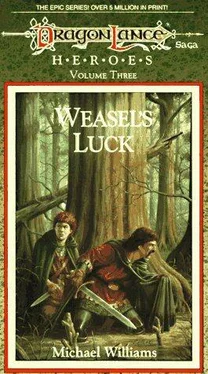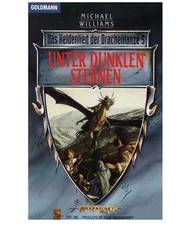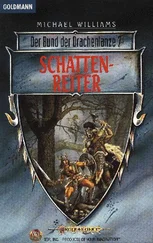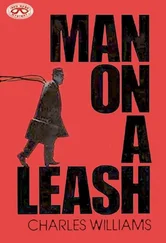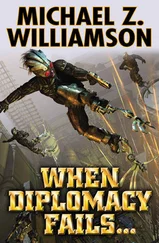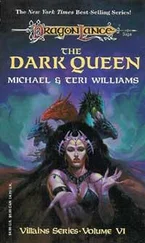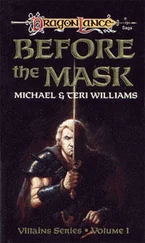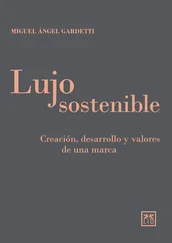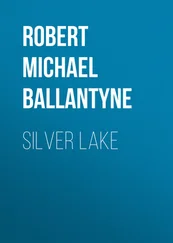Michael Williams - Weasel's Luck
Здесь есть возможность читать онлайн «Michael Williams - Weasel's Luck» весь текст электронной книги совершенно бесплатно (целиком полную версию без сокращений). В некоторых случаях можно слушать аудио, скачать через торрент в формате fb2 и присутствует краткое содержание. Год выпуска: 2005, ISBN: 2005, Жанр: Прочая справочная литература, на английском языке. Описание произведения, (предисловие) а так же отзывы посетителей доступны на портале библиотеки ЛибКат.
- Название:Weasel's Luck
- Автор:
- Жанр:
- Год:2005
- ISBN:0-7869-3181-7
- Рейтинг книги:5 / 5. Голосов: 1
-
Избранное:Добавить в избранное
- Отзывы:
-
Ваша оценка:
- 100
- 1
- 2
- 3
- 4
- 5
Weasel's Luck: краткое содержание, описание и аннотация
Предлагаем к чтению аннотацию, описание, краткое содержание или предисловие (зависит от того, что написал сам автор книги «Weasel's Luck»). Если вы не нашли необходимую информацию о книге — напишите в комментариях, мы постараемся отыскать её.
Weasel's Luck — читать онлайн бесплатно полную книгу (весь текст) целиком
Ниже представлен текст книги, разбитый по страницам. Система сохранения места последней прочитанной страницы, позволяет с удобством читать онлайн бесплатно книгу «Weasel's Luck», без необходимости каждый раз заново искать на чём Вы остановились. Поставьте закладку, и сможете в любой момент перейти на страницу, на которой закончили чтение.
Интервал:
Закладка:
“Set aside that dagger and look at me, boy.”
A quick glance told me that the boy at issue was Alfric, and I settled behind my book again, to listen and to enjoy.
“There is no answer to this in the duty of father to son, of son to father. Perhaps I have been too soft in dealing with you over the weeks, but the gods forgive me, I thought that nothing truly ill had come of this negligence. That indeed we were guilty of betraying the promises of host to guest, and though in the old days no punishment was severe enough for such betrayals, these are the new days, when the eye is inclined to blink at those misdeeds not . . . capital.”
He rose to his feet, and somehow in the morning light he seemed to take on a little of that stature and bearing he must have had before we were born, when he was counted among Coastlund’s finest before the declining years caught up with him and retired him to our little out-of-the-way estate.
He must have looked that way years ago, and by the gods, he must have been formidable! Had he asked questions then, I might well have spilled the story—told of my every misdeed with the Scorpion and even some things that happened years ago, simply because it looked as though he could see right through us and would punish us even more fiercely if we lied.
But Father was finished with questions. “That is no longer the case,” he continued. “You have done a terrible thing that becomes more terrible with time. Be it negligence or worse, for deeds such as this, the Measure alone provides the answer. The Measure and the Code.”
Father stared at the floor, stared ever so long before speaking again.
“I have no other choice. Would that it were otherwise, but my options have gone out.” He raised his sword in the formal Solamnic salute.
“Until Sir Bayard Brightblade of Vingaard, Knight of Solamnia, returns the thief, the false wearer of his armor, to our hands for trial and execution, I must confine my eldest son, Alfric Pathwarden, to the dungeon of these premises until we may determine a just and fitting punishment for his disgraceful actions in this matter. Within those forsaken walls, I hope my son will reflect upon his part in the crimes that have blotted the name of our family and of the Solamnic Order.”
I must admit I never thought Father had it in him. I looked at Brithelm, who shrugged and cast his gaze skyward. Alfric, on the other hand, was too astounded to do anything but laugh. And laugh he did at first, shaking his head in disbelief, kicking the bulldog once more, who, having finally caught on, lumbered over to Brithelm for safety and consolation.
Alfric stopped laughing as it finally sunk in that no matter how preposterous the punishment sounded, Father was not joking. Sobering, my brother tried to say something—anything—that would express his own indignity. All that issued forth was some sort of nasal bleating, as though somewhere out near the stables the servants were shearing a sheep.
Father stared unwaveringly at his first-born, his heir. “If you only knew,” he stated flatly, mournfully, “how grave a disappointment your actions have been to me, Alfric, that knowledge would be punishment enough.”
“Whaaaa,” my brother responded. The bulldog watched curiously from beneath Brithelm’s chair.
“But you have no more knowledge of honor, of responsibility, of penance, than . . . than . . .” Father’s eyes searched the room angrily, “than that bulldog crouched over there under Brithelm.” He pointed at the bulldog, who cringed.
“Whaaaa,” Alfric bellowed, and I couldn’t help it. I began to snicker. The angry stare turned suddenly, forcefully, in my direction.
I could guess how the men of Neraka had felt when my father was young, guarding passes.
“And seeing as my youngest son, your brother Galen, has not accorded himself in a manner to be entirely above suspicion, he shall join you in this period of confinement, until the facts are before us and we can see where all the blame might lie.”
“But, Father!” I began to plead. A panic-stricken sidelong glance at Alfric revealed a slow grin erasing his outrage and fear. We would be alone down in the dungeon, alone and out of earshot. And Alfric with yet another offense he could blame on me.
All I could do was stammer.
“But, Father! B-but, Father!”
Speechless for once. No better than Alfric.
The dungeon smelled of mold and oak and soured wine. I huddled in a corner in the dark. Then I moved toward the center of the far wall, still as far away from Alfric as possible without digging my way to freedom—which, of course, would be the first thing on the agenda if I survived the brotherly attentions that were sure to come.
Father stood in the doorway with Brithelm and Gilean-dos. Brithelm held a lamp that framed the party in flickering, dim light—Gileandos barely visible, for understandably, he shied away from flames, having last been ignited a month before in the last brotherly cooperation Alfric and I had enjoyed. You could barely see the glint of light on his bandages.
“You’ll be fed twice a day,” Father proclaimed. “We intend to be stern, but not inhumane. Each morning you will be allowed a walk through the courtyard, for fresh air.
“There is a lesson in this,” he continued. “A lesson for all of us. Though I shall be confounded if I can figure it.”
He moved back out of the light. I could see only Brithelm now, holding the lamp, gazing at me sorrowfully, sympathetically, no doubt wishing he could take my place.
From the dark at a distance, I could hear Father say, “I trust you are aware of how disappointed I am in the both of you.” Then the door closed, leaving us in total darkness.
And I heard Alfric growling, beginning to crawl my way across the dungeon floor.
Chapter Three
Although I always hated poetry, I remember wanting to be a bard. For I had seen their overnight performances in the moat house, and the whole business looked like a good deal. You were fed, then you told a story which nobody dared to call a lie, so you could embroider as much as you liked. Then you were paid for lying. It was a life to which I could become accustomed.
I lost that illusion early. Indeed, eight years ago, on a night I remember clearly, the illusion, you might say, flew over the moat and vanished.
When Quivalen Sath, the most famous of elvish bards, sang before my father in the moat house two weeks after my ninth birthday, it was enough to put me off poetry forever.
The night of the bard was the night that the blackmail began. Supervised by Gileandos, we boys cleaned the great hall of the moat house while Father prepared to receive the honored guest. Anxious that the hall look its best for the great artist, Gileandos was beside himself, even kicking a servant or two when he found the hearth still cluttered with ashes. I crouched, broom in hand, over the ashes, as the dusty boys ran from the room. I turned at the outcry of a stable groom, imported for the important job, who lay doubled up with pain beneath the table, awaiting another kick from Alfric, who stood above him smiling.
“A bit much, Alfric!” Gileandos exclaimed, as the old man swooned away beyond pain, clutching at the tablecloth as he lost consciousness.
“I got carried away,” Alfric growled. Then he crouched, dusted his boot, and grabbed the servant by the hair. Dragging the man from the hall, he laughed and called over his shoulder, “A lover of poetry, that’s me for sure!”
Even eight years ago Alfric would have set a table for a yokel with a cello if it meant a chance to kick the servants.
Quivalen Sath was no yokel, but in fact he looked like any other elf, no richer for his bardic experience, dressed in the green of a huntsman, his long hair slightly silvered. Still, he was solemn and eloquent, and, after all, he was a genuine celebrity, author of the same Song of Huma Gileandos had made me memorize last dreary winter in the same great hall, before my first retaliatory fire had singed his beard and half the face beneath it, cutting short our study of the classics.
Читать дальшеИнтервал:
Закладка:
Похожие книги на «Weasel's Luck»
Представляем Вашему вниманию похожие книги на «Weasel's Luck» списком для выбора. Мы отобрали схожую по названию и смыслу литературу в надежде предоставить читателям больше вариантов отыскать новые, интересные, ещё непрочитанные произведения.
Обсуждение, отзывы о книге «Weasel's Luck» и просто собственные мнения читателей. Оставьте ваши комментарии, напишите, что Вы думаете о произведении, его смысле или главных героях. Укажите что конкретно понравилось, а что нет, и почему Вы так считаете.
